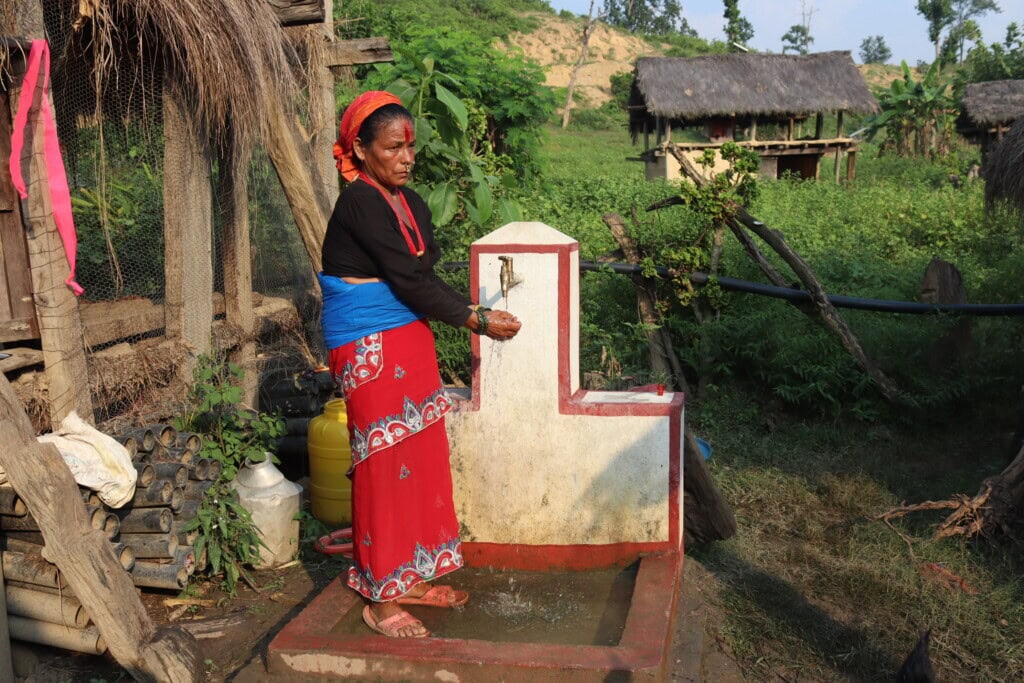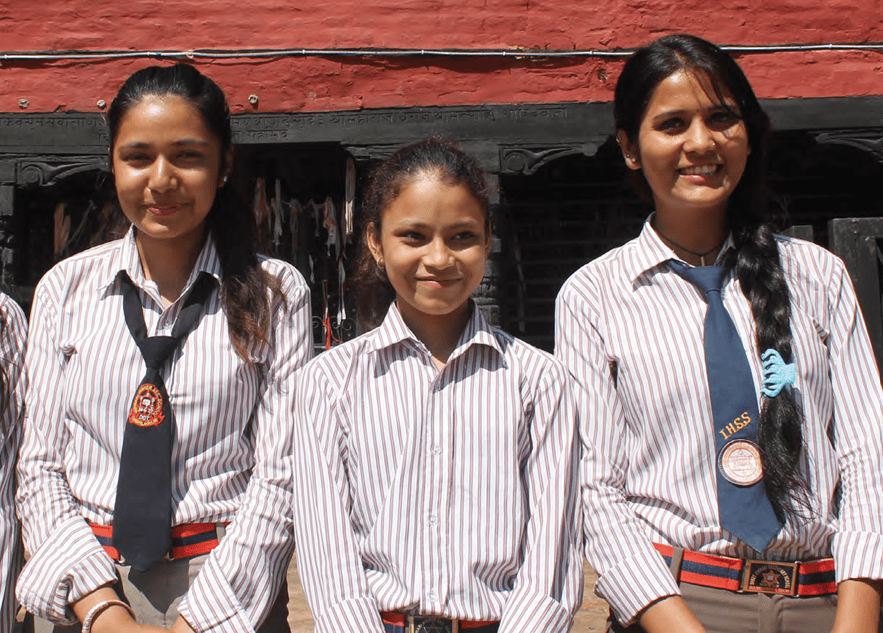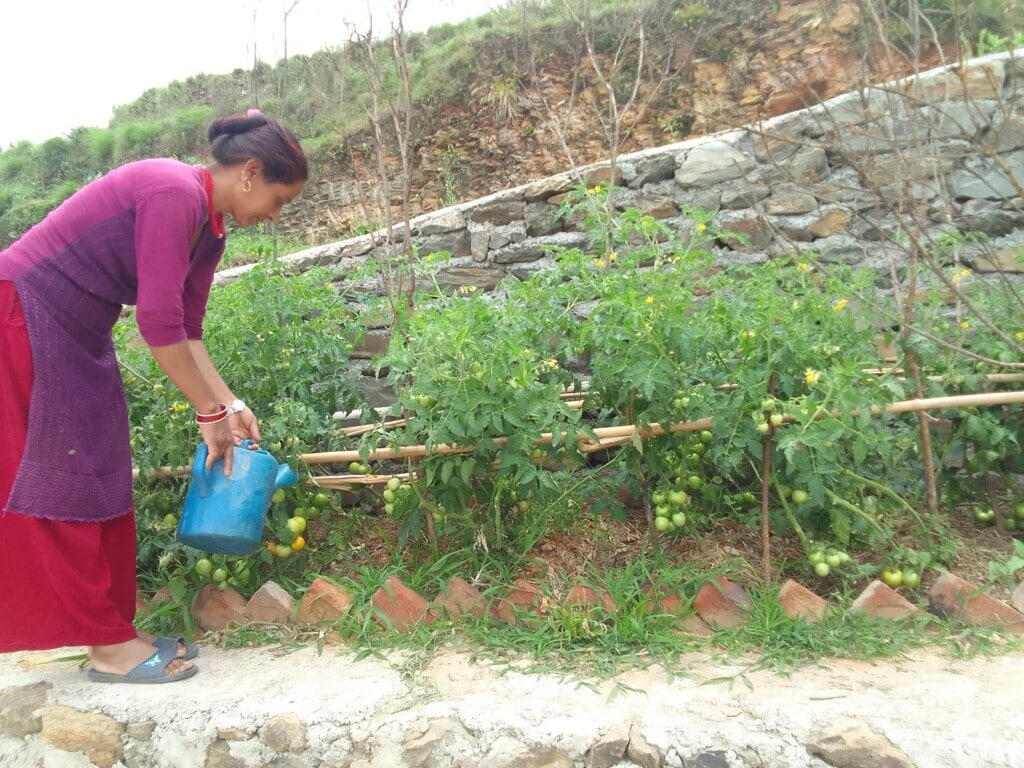


E4WASH Sindhupalchok: Energy for Safe Water, Sanitation and Hygiene in Sindhupalchok
Location
Sunkoshi Rural Municipality, Sindhupalchok District, Nepal
Project Dates
1 October 2025 – 31 March 2028
Technology
Solar-powered water pumping for multiple use system (Solar MUS)
Project Reach
1,180 community members (including school students) will gain access to a safe and sustainable water supply and behaviour change on water, sanitation and hygiene (WASH)
3 schools with a total of approx. 668 pupils will benefit from new or improved WASH facilities and WASH behaviour change
Project Partners
Local Initiatives for Biodiversity, Research and Development (LI-BIRD)
Local NGO partner TBD
Project Funders
Stichting Warm Nest (SWN)
David and Ruth Lewis Family Charitable Trust (DRLFCT)
Target SDGs
3, 6, 7
Overview
In Nepal, some 2.3 million people still lack access to safe water, and 17.4% of the population experiences multidimensional poverty. Hilltop communities, in particular, lack access to safe water. They cannot be reached by low-cost gravity-fed water systems, and the electricity grid, even if present in the village location, does not tend to cover the areas where the water sources are located. For households and schools in these communities, this means a lack of access to water and/or reliance on unsafe water. This leads to inadequate sanitation, causing ill-health, particularly the spread of diarrhoeal diseases. In addition, gender inequalities are reinforced since girls and women (the ones usually tasked with fetching water from remote sources) face excessive physical burdens, time costs and risks to their safety. Finally, girls can experience stigma and discomfort if their menstrual hygiene needs go unmet.
The solution is our tried-and-tested E4WASH project model built upon a foundation of solar-powered water-lifting, improved WASH, menstrual hygiene, community capacity-building and empowerment.
Results Framework
Goal: To improve access to and use of safe and sustainable water and sanitation for 1,500 community members in 3 of Sindhupalchok district’s underserved communities
Outcome1: Increased access to safe water in 3 communities and improved WASH behaviour by community members and students
Outcome 2: Improved and equitable local governance for sustainable operation and maintenance of installed/improved WASH infrastructures
Outcome 3: Increased capacity of 180 farmers to pay water tariff through increased production and sale of vegetables and spices
Outcome 4: Project is accountable to communities and can demonstrate the benefits of sustainable clean energy-centred livelihood spinned by clean energy solutions.